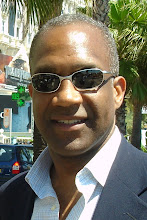If you remember the discussions late last year about whether it was necessary to "bail-out" failing private companies with public money, you also probably remember hearing some public officials and pundits saying that it was in the public interest to save these private corporations because those corporations were "too big to fail." The idea is that if some, select, large, banks, automobile manufacturers, and stock brokerage houses -- pillars of the national economy -- are allowed to suffer the full consequences of their poor financial decisions, the national economy, as we know it, would cease to exist.
Yesterday, we were confronted with the personal equivalent of the the corporate "bail-out": Too good to overlook. We see this dynamic at work in the case of Health and Human Service Secretary designate Thomas A. Daschle who, it was reported, failed to pay more than $128k in taxes over three years for "unreported consulting fees, questionable charitable contributions, and a car and driver provided by a private equity firm. . ." (Click here for the full article in The Washington Post.)
He "is the best person to help reform health care in this country, " said a spokesman for Senate Majority Leader Harry M. Reid. In other words, he's too good to overlook.
Mr. Daschle is not the first of President Barack Obama's nominees for cabinet-level positions to own up, belatedly, to having unpaid federal income tax obligations. Treasury Secretary Timothy F. Geithner was in Mr. Daschle's place only a few weeks ago, when it was revealed that he owed more than $43k in unpaid federal tax and interest on the amout owed. (Click here for the full article in The New York Times.) Concerns about the incongruity of the nation's senior tax collector (since the Internal Revenue Service is under the Treasury Department) being less than circumspect about his own taxes were soon resolved, in some degree because, as the White House Press Secretary said: Geithner is the “right person to help lead our economic recovery during these challenging times.” In other words, he's too good to overlook.
The idea of something being too big to fail; or of someone being too good to overlook ought to make all of us uneasy, because such views imply that the rules that generally apply to others, do not specifically apply to me. It would seem that such attitudes have largely contributed to -- and perpetuated -- our foundering financial, economic, political, and moral states.
I think that there is an antidote to the "2big/2good" view: Humility and equity.
Humility requires that we repudiate the intoxicating thought that some rules don't apply to us because we're too wise, successful, or strong. Humility requires that we readily admit that we haven't always been square in our public and personal dealings, and resolve -- daily -- to live according to the highest standard.
Equity (fairness) requires that we continually ask: "If it's good enough for me, why is it not good enough for others?" Equity requires that if we do not like the answer to the previous question, that we commit our energy to balancing the scales.
Subscribe to:
Post Comments (Atom)




No comments:
Post a Comment